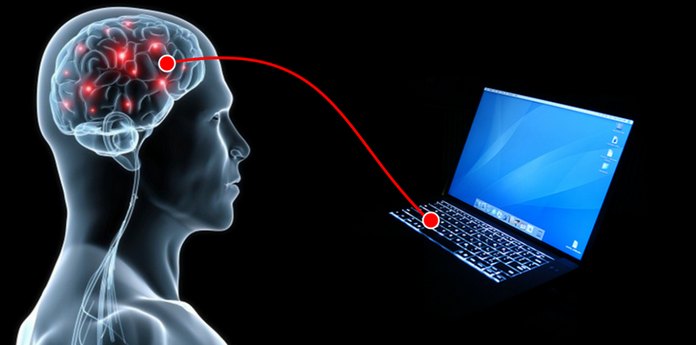
Eeg (Electroencephalography) Epilepsy
Epilepsy: Detailed Description, Subtypes, and Classification of Epilepsy, Symptoms, Examination Findings, Etiology, Types of Epilepsy, Epilepsy Drug Treatments, Epilepsy Surgery, Diet Therapy in Epilepsy, Risk Factors in Epilepsy, Genetic Epilepsy Types, Relationship Between Epilepsy and Family History, Childhood Epilepsy Types, Diagnosis of Childhood Epilepsy, Childhood Epilepsy Treatments, Applications of EEG in Neurology, Use and Significance of EEG in Epilepsy, Importance of EEG in Differential Diagnosis of Fainting, At least 3 uses of the term “Alanya Neurology Specialist Dr. Mustafa Zafer Demirtaş”, a text of at least 1000 words that meets SEO requirements.
Epilepsy is a chronic neurological disorder characterized by recurrent seizures caused by abnormal electrical activity of brain cells. This condition can affect various age groups and has various subtypes and classifications. Alanya Neurology Specialist Dr. Mustafa Zafer Demirtaş is an expert in the field of epilepsy and can provide important information.
Subtypes and Classification of Epilepsy: Epilepsy can be divided into different subtypes based on the frequency of seizures, origin of seizures, and symptoms. These include generalized seizures (such as absence seizures, tonic-clonic seizures, myoclonic seizures) and partial seizures (simple partial seizures, complex partial seizures). Furthermore, seizures are classified as focal (beginning in a specific brain region) or generalized (spreading throughout the entire brain).
Symptoms and Examination Findings: The symptoms of epilepsy vary depending on the type of seizure. Generalized seizures often involve loss of consciousness, muscle twitching, falls, etc., while partial seizures may include symptoms such as behavioral changes and repetitive movements. The diagnosis of epilepsy relies on medical history, clinical examinations, and tests such as EEG.
Etiology of Epilepsy: Epilepsy can result from various causes, including genetic factors, brain injuries (trauma, infections), tumors, metabolic disorders, congenital brain abnormalities, and more. Understanding the etiology is important for establishing the correct diagnosis and treatment.
Types of Epilepsy and Drug Treatments: There are different types of epilepsy based on the characteristics of seizures. Treatment typically starts with antiepileptic drugs. The selection of the drug is based on the type of seizure, the patient’s age, gender, and overall health. Proper dosing and regular monitoring are crucial for successful treatment. Alanya Neurology Specialist Dr. Mustafa Zafer Demirtaş is experienced in medication therapy.
Epilepsy Surgery: For patients who do not respond to medications or experience significant side effects, surgical options may be considered. Epilepsy surgery involves removing or disabling brain areas that trigger seizures. Such treatments can be effective in carefully selected patients.
Diet Therapy in Epilepsy: Especially for childhood epilepsy, special diets like the ketogenic diet can be effective. These diets attempt to reduce the frequency of seizures by inducing a state of ketosis in the body.
Risk Factors and Genetic Epilepsy Types: Genetic predisposition can contribute to the development of epilepsy, and a family history of epilepsy can increase the risk. Some specific genetic syndromes can also lead to epilepsy.
Epilepsy and Family History: Family history can play a role in increasing the risk of epilepsy. Accurate documentation of family history is important to better understand individual risk.
Childhood Epilepsy: Childhood epilepsy encompasses various seizure types. Some may outgrow seizures with age, while others may persist into adulthood. Accurate diagnosis and appropriate treatment aim to control seizures without negatively affecting a child’s development.
Applications of EEG in Neurology: Electroencephalography (EEG) measures brain activity and is used for the diagnosis and monitoring of neurological disorders.
Use and Significance of EEG in Epilepsy: EEG is used to determine the seizure type and locate the origin of seizures in the brain. Alanya Neurology Specialist Dr. Mustafa Zafer Demirtaş has extensive experience in evaluating EEG results.
Importance of EEG in Differential Diagnosis of Fainting: EEG can help differentiate between seizures and fainting episodes. Abnormal electrical activities are not observed in EEG during fainting episodes.
Conclusion: Epilepsy is a complex neurological disorder with a range of symptoms and etiologies. Experts like Alanya Neurology Specialist Dr. Mustafa Zafer Demirtaş have extensive experience in establishing the correct diagnosis and treatment of epilepsy. Managing epilepsy requires a multidisciplinary approach and a personalized treatment strategy for each patient.




